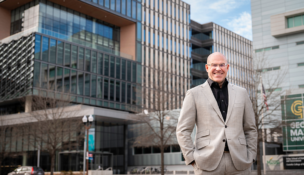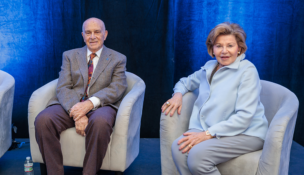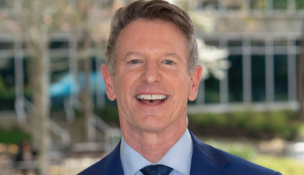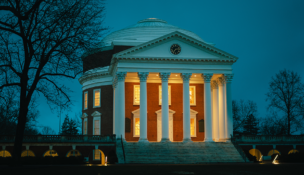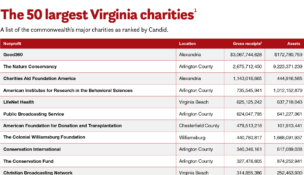Responding to business needs
College stays attuned to the workforce demands in Hampton Roads
Responding to business needs
College stays attuned to the workforce demands in Hampton Roads
Editor’s Note: This is a continuing series profiling Virginia’s colleges and universities.
Whether training technicians employed by a major local manufacturer, nursing assistants for a major health-care provider or welders seeking maritime jobs in the burgeoning shipbuilding and ports industry, Tidewater Community College has become a key player in supplying Hampton Roads industries with highly skilled workers.
Enrolling nearly 40,000 students annually, the college is the region’s largest provider of higher-education and workforce services. Founded in 1968, TCC is the second largest of the 23 schools in the Virginia Community College System, the 11th largest public community college in the U.S. and the 17th largest associate degree producer among the nation’s two-year institutions. In addition to campuses in Virginia Beach, Chesapeake, downtown Norfolk and Portsmouth, TCC hosts five regional centers in advanced technology, health professions, automotive, military and veteran education, and workforce solutions.
“We strive to be responsive to the needs of the community,” says TCC President Edna V. Baehre-Kolovani, who in 2012 became TCC’s fifth president. “In the last 30 years, we’ve had a much greater focus on workforce training, and we’ve become more flexible and responsive to the business community in ensuring that our curricula and degrees meet the needs of the economy of our area.”
She adds that TCC has expanded its global and technological reach during the past three decades, establishing an exchange program with a Danish business college and increasing the use of smartphones, iPads and other technologies in instruction. “It’s fundamentally changed how we deliver education, specifically with our online degree programs.”
TCC also offers dual enrollment programs that give local high school students a jump on college courses. The school also a mechatronics program preparing workers for jobs in advanced manufacturing and other industries, a groundbreaking maritime technologies degree and a textbook-free degree program. Along with technical skills, the college develops communication and problem-solving abilities, giving students a leg up in the crowded job market. “These are employable graduates,” Baehre-Kolovani says. “Employers know our students are skilled and have the related competences to make them employable.”
One-third of TCC’s students are military, National Guard and reserves personnel, veterans and their families. Earlier this year, Military Advanced Education named TCC the nation’s top school for military.
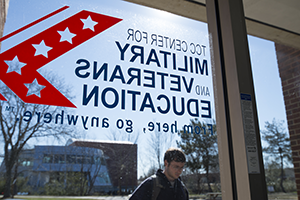
That includes designing a maritime technologies degree to augment the number of skilled technicians for Hampton Roads’ shipbuilding and port-related industries. TCC also hosts the Southeast Maritime and Transportation Center, one of more than 40 National Science Foundation Advanced Technological Education centers across the country.
“We’re preparing people for exactly what the maritime industry needs,” says Barbara Murray, the center’s executive director. “The region’s shipbuilding industry needs tugboat workers, truck drivers, welders, pipefitters, ship fitters. By the end of the decade, 18,000 of these jobs will need to be filled. When you save those jobs, it helps our economy.”
TCC trains more than 1,300 maritime apprentices annually, giving students real-world experience at shipyards and the Port of Virginia in areas ranging from maritime welding to marine logistics and truck driving. That attentiveness to industry needs sets TCC apart from other colleges, says Brad Mason. He’s the director of maintenance, modernization and technical services for AMSEC and chairs the SMART Center’s Maritime Technologies Consortium, a group of industry and education representatives. “TCC is very responsive. If we go to them and say we have this need, they’ll develop the academic curriculum.”
About 450 representatives from local businesses serve on advisory committees for each of TCC’s technical programs, helping the college develop curricula and respond to industry changes. “They tell us what they need, and we respond,” says Thomas Stout, dean of science, technology, engineering and math at TCC’s Chesapeake campus.
Demand for advanced manufacturing workers led TCC to develop its highly successful mechatronics program. “There’s a career at the end of it,” Stout notes. “Employers need mechatronic technicians and don’t want to just hire an electrician and a mechanic. They need someone who understands the processes.”
TCC mechatronic students finish the program as technologists ready to work on electrical and mechanical systems. Many transfer to Old Dominion University and other schools to complete their bachelor’s degrees. “Our graduates are coming out as more than a technician but not quite an engineer,” Stout explains. “With a four-year degree, you’re more qualified to be the person in charge of a maintenance team. That can be a pretty lucrative job.”
Last fall, TCC and Chesapeake Public Schools launched a dual enrollment program in mechatronics, a first for the college’s career and technical programs. Students will attain their high school diploma along with a career studies certificate in mechatronics and then earn an associate degree in mechatronics from TCC in one year. Almost 30 Chesapeake high school students have enrolled and are being mentored by representatives from local technical firms. “It’s industry buy-in,” Stout adds. “They’re excited about what we’re doing and are actual participants in keeping students engaged.” TCC also plans to offer mechatronics as a dual enrollment program in Virginia Beach Public Schools.
About 350 to 400 students are enrolled in the mechatronics program. (Mechatronics is a multidisciplinary field of engineering.) Representing traditional and nontraditional students, they include a group of Stihl Inc. employees hired for the company’s four-year apprentice program. Virginia Beach-based Stihl is a major power-tools manufacturer.
Through a partnership with TCC and the Virginia Department of Labor, the apprentices work at Stihl while earning associate degrees in mechatronics. “Manufacturing is highly automated,” says William “Skip” Johnson, Stihl’s apprenticeship coordinator. “Between on-the-job training and the education they get at TCC, our apprentices are prepared to work in these automated systems.”
Students can earn continuing education credits and industry certifications through TCC’s Center for Workforce Solutions, which partners with local industries to design customized employee training programs. “Our goal is to serve the community and be responsive to businesses’ needs,” says Corey McCray, the center’s vice president. “We can’t guarantee jobs for people going through our programs, but we do provide quality potential employees.”
Students learning sonography, the use of ultrasound technology, hone their skills while helping first-year Eastern Virginia Medical School students learn to perform ultrasounds through a unique mentorship program between TCC and EVMS. “EVMS is among the few U.S. medical schools that integrate ultrasound into its curriculum,” says Indu Sharma, TCC’s head of diagnostic medical sonography. “Our sonography students take part in labs at EVMS where they give individualized attention to medical students who perform ultrasounds on model patients. They sit in on a lecture before the lab and then help the medical students produce the ultrasound images.”
While lectures are integral to most TCC classes, textbooks are rapidly vanishing in favor of freely accessible Open Educational Resources. Chalk that up to the growing popularity of TCC’s innovative “Z Degree,” a textbook-free degree program developed to offset the escalating costs of textbooks. With textbooks accounting for one-third of college costs, students can spend up to $1,500 a semester for books, with some forced to either go without them or place their education on hold. “A student told me that she needed my class to graduate, but couldn’t afford the $275 for a textbook,” recalls Linda Williams, a TCC business administration professor who helped design the Z Degree. “As long as she’s got that one course out there, she doesn’t graduate. I can’t let that happen if I have the ability to do something about it.”
TCC became the first U.S. community college to offer a textbook-free degree in 2013. The pilot program gave students the opportunity to earn an associate degree in business administration — completely textbook free. Along with the slate of business courses, students also took general education and electives without using textbooks. More than 90 percent of students in Z courses give the program high marks. Last fall, more than 1,000 students enrolled in Z courses.
For her business statistics course, Williams created a six-minute video on her laptop to explain theory and demonstrate problem-solving techniques. “We strip courses down to the learning objectives,” she notes. “What we end up with is a course that is much leaner and allows us to spend more time focusing on the things that matter and get more critical thinking from students.”
Textbooks are still available for those who prefer traditional learning methods, but Williams notes that millennials tend to prefer video and audio materials. “They grew up with their face in a phone. They’re much more accustomed to instant information received in a digital or video format.”
TCC plans to add an associate degree in applied science in criminal justice to the Z degree roster this fall. Z degrees for general studies and social sciences are also on tap in the next year, and Williams believes all courses could be offered textbook free. “It’s more of a challenge to create some of those courses than others such as technical trades where the content is proprietary,” she says, “but I don’t believe it’s impossible.”
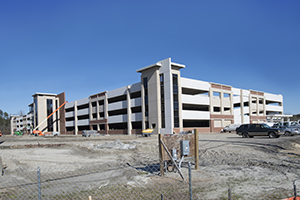
Proof, she adds, of the college’s value. “Our overriding vision is to be the most affordable, innovative and convenient provider of high-quality career training. We’re vital to the region’s economy.”
Related: Tidewater Community College offers a textbook-free degree program
t


